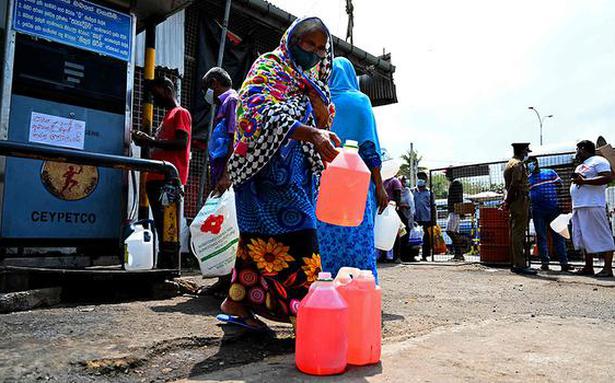The lack of foreign exchange has triggered Sri Lanka’s worst economic downturn since independence; meets diesel and electricity
The lack of foreign exchange has triggered Sri Lanka’s worst economic downturn since independence; meets diesel and electricity
Diesel stopped being sold across Sri Lanka on Thursday, paralyzing transport as the crisis-hit country’s 22 million residents suffer record-long power outages.
The South Asian nation is mired in its worst economic downturn since independence, triggered by an acute shortage of foreign exchange to pay for even its most essential imports. Diesel – the main fuel for buses and commercial vehicles – was not available at petrol stations across the island, according to officials and media reports.
Gasoline was on offer but scarce, forcing motorists to abandon their cars in long lines. “We siphon fuel from buses that are in the garage for repairs and use that diesel to run serviceable vehicles,” Transport Minister Dilum Amunugama said.
Owners of private buses – which make up two-thirds of the country’s fleet – said they were already running out of oil and might not even be able to do skeleton services after Friday. “We’re still using old stocks of diesel, but if we don’t get supplies by tonight we won’t be able to drive,” the head of the Association of Private Bus Operators, Gemunu Wijeratne, told AFP. The state power monopoly said they were being forced to enforce a 13-hour power outage starting Thursday – the longest on record – because they ran out of diesel for generators.
“We are promised supplies in two days and when that happens we can shorten the duration of the blackouts,” MMC Ferdinando, chairman of the Ceylon Electricity Board, told reporters. He said water reservoirs, which supply more than a third of electricity needs, are also dangerously low.
The protracted power outages forced the Colombo Stock Exchange to restrict its trading by half an hour to two hours, while many offices asked non-essential staff to stay home. Power rationing also hit cellphone base stations, affecting call quality, operators said, adding that their backup generators were also diesel-free. The bottlenecks have sparked outrage across Sri Lanka, and local television reported protests across the country, while hundreds of motorists blocked main roads in several towns.
Several state hospitals have suspended operations due to running out of life-saving drugs, while most have suspended diagnostic tests that require imported chemicals that are in short supply. Colombo imposed a sweeping import ban in March 2020 to save foreign exchange needed to service its $51 billion foreign debt. However, this has led to widespread shortages of essential goods and sharp price increases.
The government has said it is seeking a bailout from the International Monetary Fund while asking for more loans from India and China. Sri Lanka’s predicament has been exacerbated by the Covid-19 pandemic, which has torpedoed tourism and remittances. Many economists also blame government mismanagement, including tax cuts and years of fiscal deficits.


